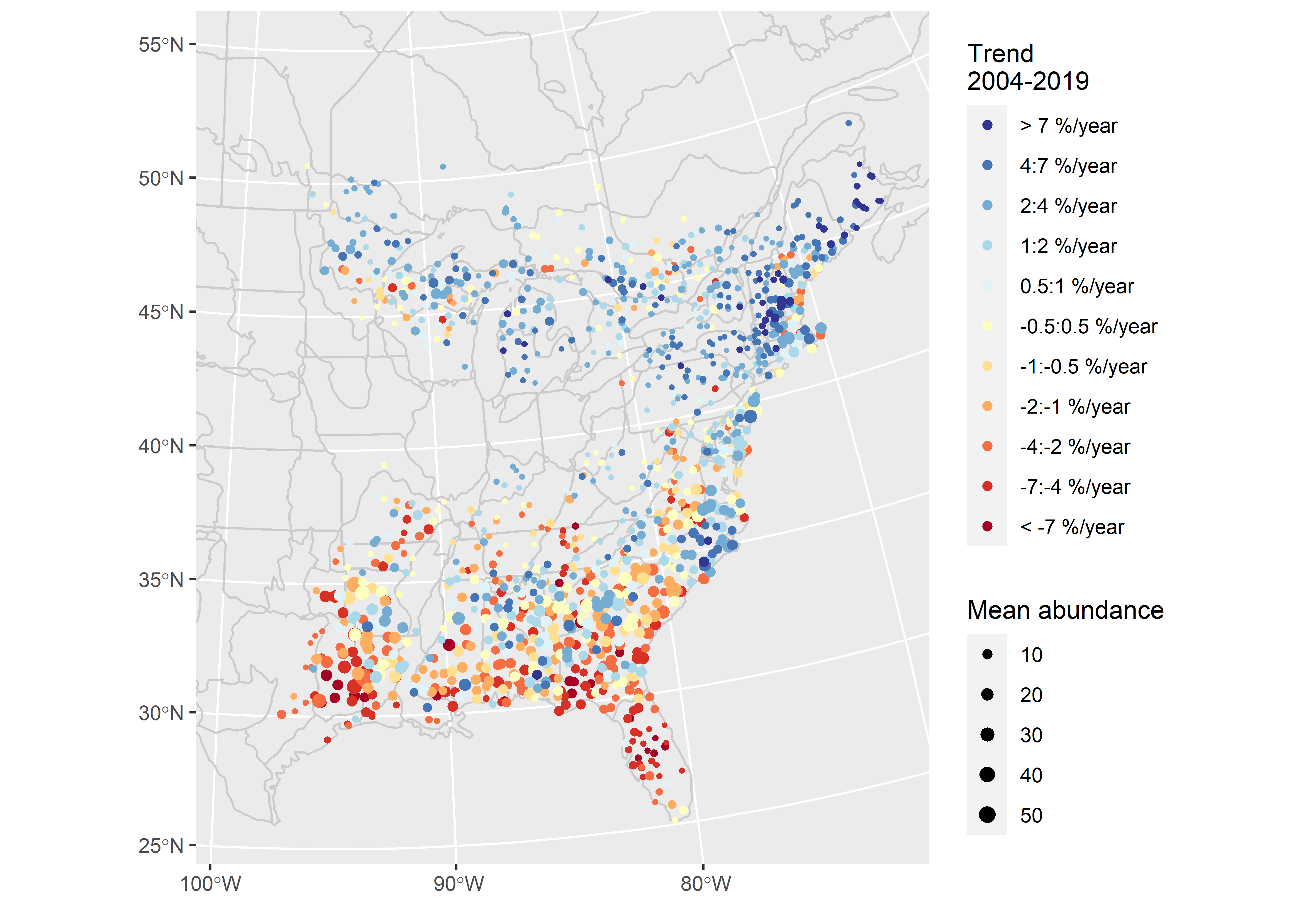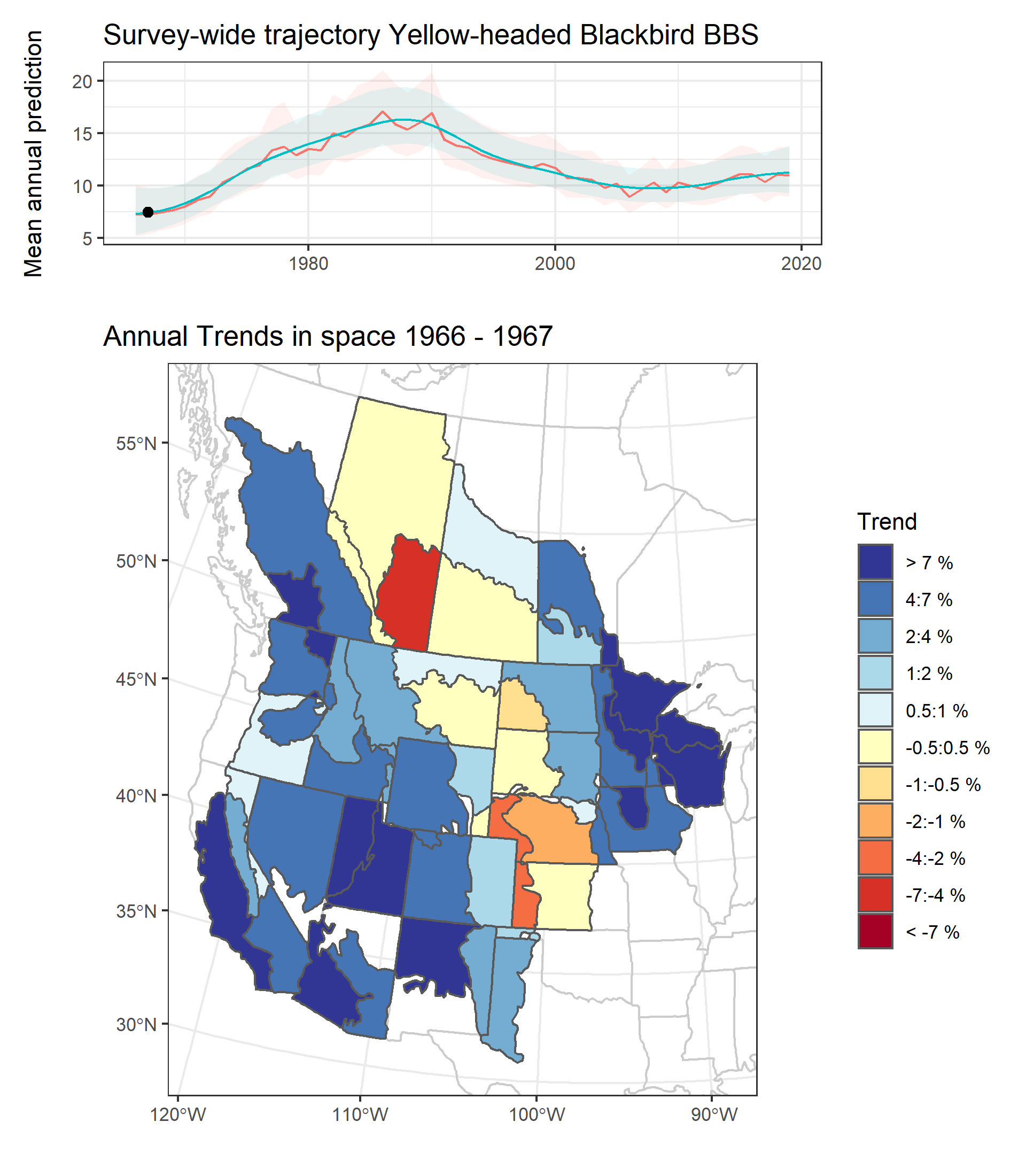Adam C. Smith

I am a quantitative ecologist with the Canadian Wildlife Service, a branch of Environment and Climate Change Canada. I am also an adjunct professor at Carleton University.
My schooling is in biology. I have biology degrees from Trent University and Carleton University. Over the course of my graduate studies, I morphed from a field biologist into a data-scientist/statistician. I specialize in using broad-scale bird monitoring data (North American Breeding Bird Survey, Christmas Bird Count, eBird, shorebird migration surveys, etc.) to track changing bird populations and to investigate the causes behind those changes.
Bayesian Modelling
I use Bayesian statistical models in almost all of my projects. My recent work mostly relies on the probabilistic programming language Stan. It’s powerful, flexible, supported by a brilliant community of constructive programmers and mathematicians, and it has excellent diagnostics.
More philosophically, the Bayesian framework allows me to answer the questions of interest, without relying on a tortured triple-negative interpretation of alternate realities, and to incorporate prior ecological knowledge into analyses. If you want to hear some brilliant people talk about the benefits of Bayesian modeling, check out the podcast Learning Bayesian Statistics and the book Bernoulli’s Fallacy
Influential sources
I keep a list of some of the resources that I’ve found most useful for getting thinking about statistics, modeling, and the philosophy of science here.
Open Science
My data-science work is all available on my GitHub site.
I am passionate about facilitating access to the long-term monitoring information that helps us understand how the natural world is changing. In particular, my work with the R-package bbsBayes2.
I have benefited immensely from the open code and data of others. I have discovered that working openly and transparently improves my science (and makes life easier for me), and of course, I hope that making my work available and open will also be useful for others (if only as a cautionary tale).
Prospective Students
I am available to co-supervise students at Carleton (BSc, MSc, or PhD) who have a particular interest in quantitative ecology. Projects that relate to my work with Canadian Wildlife Service could include research into the drivers of bird population trends (e.g., effects of climate or landcover on species’ trends), the integration of monitoring data from varying survey programs (e.g., North American Breeding Bird Survey and eBird), and estimating the changing number of birds in North America (e.g., spatially explicit elaborations on our work in Rosenberg et al. 2019) Please get in touch, if this kind of thing sounds interesting.
Interested in working for Canadian Government
I am always happy to chat with anyone interested in working for the Canadian Wildlife Service, and in wildlife science more generally. These are two informal presentations that my colleagues and I have had a part in preparing. No guarantees on any of the information here. These may be out of date, but hopefully useful. 1. Life as a government scientist 2. Applying for government jobs
Animated population trends for Yellow-headed Blackbird
